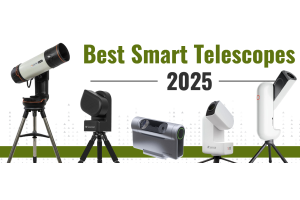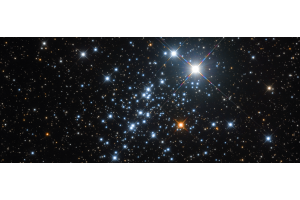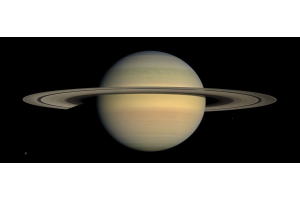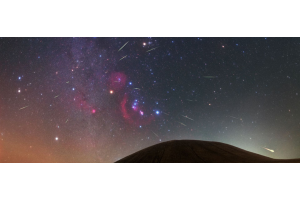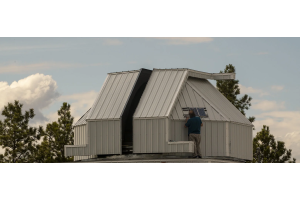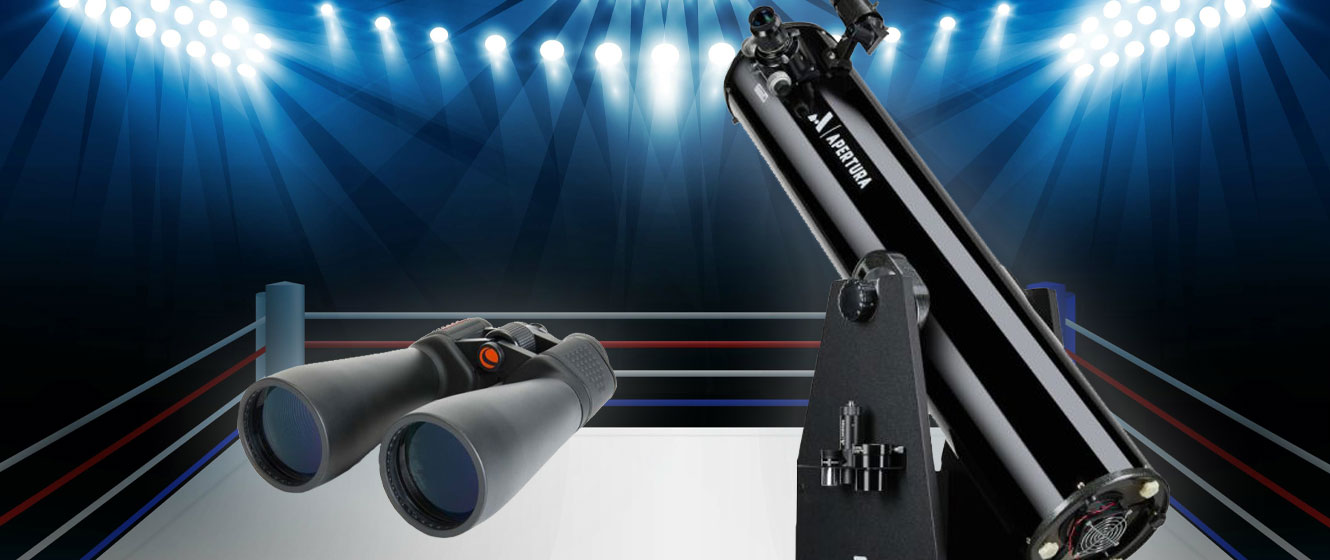
Whenever you see a depiction of someone stargazing, they’re often either looking up with just their eyes or peering through a telescope. It seems as though we associate binoculars more with birding than with astronomy, and yet binoculars can be an extremely useful tool. So are telescopes better than binoculars for astronomy, or should we be using binoculars instead?
Telescopes vs Binoculars: The Great Debate
As you might expect, when it comes to deciding if telescopes are better than binoculars, there’s no simple Yes or No answer. The short answer is: it depends.
Both have their pros and cons, and many amateur astronomers will own both binoculars and a telescope (or two!). A lot will depend upon what you want to observe, and it’s not simply a case of one being better than the other:
On the face of it, it would seem as though telescopes are much more useful than binoculars, but that’s not to say binoculars don’t have their advantages.
When Should You Choose Binoculars?
Arguably, there’s nothing like a telescope for observing the night sky. You simply can’t get the same aperture and magnification with binoculars that you can with a telescope, and you could find yourself potentially limited as a result.
So why choose to use binoculars at all then?
- They’re great for beginners. They allow you to explore the night sky and learn to both locate and identify the many deep sky objects you’ll want to observe.
- Similarly, more experienced astronomers will use binoculars to practice locating a target before then attempting to observe it with a telescope.
- Some things just look better through binoculars. For example, the Pleiades, the Hyades, and the Double Cluster can be difficult to fit within a telescopic field of view. Plus, there’s the aesthetic aspect of being able to see your target against a backdrop of stars.
- Depending on the aperture, telescopes can be heavy and cumbersome to move from one location to another. In contrast, binoculars are small, lightweight, and can be taken anywhere.
- It’s probably no surprise that telescopes are typically more expensive than binoculars. On average, you can probably expect to pay between $500 and $1000 for a mid-range telescope, whereas mid-range binoculars may only set you back about $150.
- While you can use both binoculars and telescopes during the day, binoculars have the advantage over many telescopes when it comes to activities like birding. Astronomical telescopes will invert the image, and their size makes them an impractical choice for terrestrial observing.
- Arguably, the biggest advantage of binoculars is their convenient grab-n-go nature. Don’t have much time? Clouds suddenly cleared? With binoculars, you can be outside observing in minutes, without having to get set up and then wait for your equipment to cool.
Your Choice: Binoculars or a Telescope?
Ultimately, both binoculars and telescopes are tools. Just as you wouldn’t use a hammer to put a screw in the wall (we hope), you wouldn’t use binoculars to observe Jupiter’s Great Red Spot. Whether you choose binoculars, a telescope, or both can often come down to:
- Your level of experience
- What you want to observe
- Where you want to observe
- How much you’re willing to spend
In other words, the choice is as individual as you are. We all have our preferences, likes, and dislikes when it comes to music, movies, and food, but that doesn’t mean that one choice is any better than another. The same is true with binoculars and telescopes - both have their advantages and disadvantages and both have their uses. Which one you choose to use is ultimately up to you!
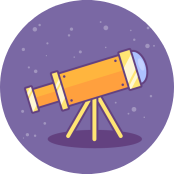
Learn More
Interested in learning more about what astronomy gear is right for you? Not sure where to begin? Check out our Astronomy Hub to learn more!






